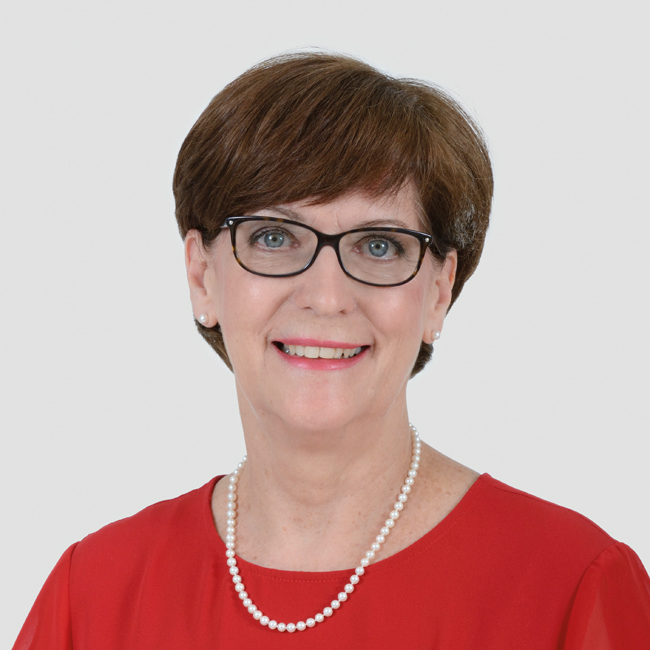Marie-France Ebacher
Professor Emerita
In the course of a career centered around university education and nursing training, Professor Marie-France Ebacher introduced problem-based learning, developed the clinical teaching program, and pioneered the use of simulation scenarios in the laboratory and at Centre Appprentiss. In cooperation with other partners in the region, she developed an integrated DEC-BAC program in nursing and contributed to the evaluation process for the bachelor's of nursing programs. She also helped develop the specialized nurse practitioner program and the PhD program in nursing.
Marie-France Ebacher has always believed in the importance of evidence-based teaching, continuous learning improvement, and skills development. Using innovative and strategic teaching methods, she helped transform the nursing curricula and secure support for innovation by fostering consensus, stakeholder buy-in, and transition toward change.Given her professional and teaching skills, Québec's order of nurses asked her to sit on its professional exam committee. She was also invited to serve as an advisor on program development and evaluation with various provincial, national, and international organizations and institutions. In 2008, Professor Ebacher received the Rachel Bureau Prize, the highest distinction awarded by Ordre régional des infirmières et infirmiers de Québec.
An ambassador for education
MarieFrance Ebacher has been a dedicated professor and active contributor in the realm of teaching and pedagogical innovation. She helped train numerous students in the Faculty of Nursing through her contributions to over 25 courses. She designed high quality learning modules, evaluation tools, and teaching materials. Some of the simulations and learning booklets she developed are now used by other universities. She also received an honourable mention in the multimedia category of the Minister of Higher Education's award. Marie-France Ebacher has been a constant innovator, working closely as a consultant and mentor with clinical teaching staff in nursing to help develop teaching activities and tools. To highlight her colleagues' work, she also created teaching excellence awards at the Faculty.
Marie-France Ebacher served as vice dean of academics and assistant to the vice rector of academic and international activities. As assistant to the vice rector, she was responsible for revising the University's academic rules for students, as well as its policies on distance learning and the promotion of teaching. She also put her skills to work as chair and member of numerous other committees and working groups on the promotion of teaching as well as scholarships, teaching excellence awards, distance learning, the Projet Santé initiative, interprofessional training, and the selection of education innovation projects. She sat on committees tasked with developing the specialized graduate diploma program, the master's program in nursing, and a graduate short program on health science education at university. She was invited on multiple occasions to sit on the selection committee for the Minister of Higher Education award competition. On an international scale, she was asked to serve as an expert on the jury of France's PEPS award for teaching excellence in higher education. Marie-France Ebacher's productivity and outstanding work on education and teaching have helped further Université Laval's reputation on the world stage.
